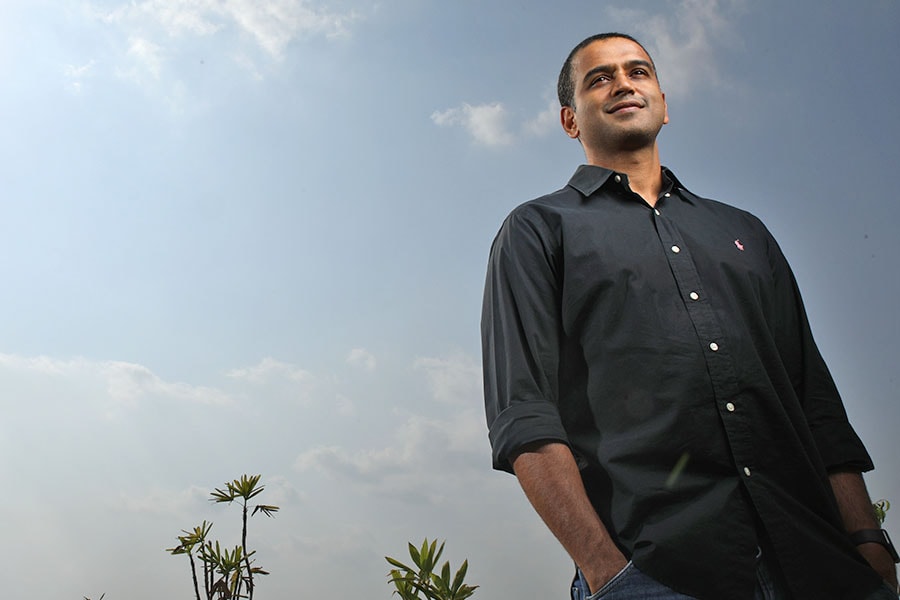
I wonder why there are only a few businesses like us that are built to generate profits and not raise venture capital: Nithin Kamath
Zerodha's co-founder and CEO on what it takes to build a world-class, credible, and socially responsible business that is focussed on sustainable growth, and why large businesses must be built without continuously raising funds to boost valuations at the cost of profitability
 Nithin Kamath, co-founder and CEO, Zerodha; Image: Selvaprakash Lakshmanan for Forbes India
Nithin Kamath, co-founder and CEO, Zerodha; Image: Selvaprakash Lakshmanan for Forbes India
Nithin Kamath, a new-age entrepreneur, built a bootstrapped unicorn, Zerodha, which disrupted and redefined the business of stock broking in India. Interestingly, unlike startup peers, Zerodha has no deep-pocketed investors or big marketing spends. But it is one of the few profitable unicorns with around 12 million customers. In an exclusive conversation on Forbes India Pathbreakers, the co-founder and CEO says, “One of the ways to succeed in business is to sharpen your axe before you go chopping wood. Building a business is really hard but there is an illusion over the last four to five years that you can build a business quickly. Last five to seven years all businesses starting out have been cut-copy-paste models and the odds of building a resilient business that way is much lesser.” He talks about starting out, building the business and more.
‘Making money quickly’
Nithin Kamath started off wanting to be a trader. “Along the way it felt like there was an opportunity to be a better broker for traders like myself. That’s how the transition happened. People actually misconstrue what trading is. People think trading is only about trading stocks. But I think of trading as trading your time for what gets you the best return on your efforts. If I am a singer, I should build my business or career in singing, and that’s a trade. I think you have to figure what you like to do and then build a business around it,” he says.
Part two of the conversation: I'm proud that at Zerodha we don't have growth targets: Nithin Kamath
Kamath started trading stocks when he was 17 years old. “I was in a neighbourhood of Marwaris and people who started business early and get introduced to money very early. That’s how I got introduced to trading and markets. I fell in love with the idea that you can make money quickly but over time I realised this was an absolutely wrong idea. There is no way to make money quickly. But being around these people who were thinking of business and money early in life got me. Otherwise, I am a South Indian Brahmin guy. There is no business in my family or extended family. That triggered a curiosity of sorts and luckily, I ended up picking something that I was passionate about. Broking was accidental, to be very honest,” Kamath adds.
‘What doesn’t kill you makes you stronger’
Kamath learned important life lessons as a stock trader. “All the money I made for three to four years, I lost it all in 2001 when the Y2K bust happened. I lost it in a week’s time and then I borrowed money as well at that point of time. So, I lost all the money I made plus more money that I had borrowed. This forced me to go find a job. But I learnt most of my life skills in that job. I worked at a call center job from 2001-05. I think selling is a very important aspect of building a business. All my sales skills I learnt speaking to people from the US at night. In hindsight, each of those things has helped me become a better person. There’s a saying what doesn’t kill you makes you stronger. So, that’s true,” he recounts.








